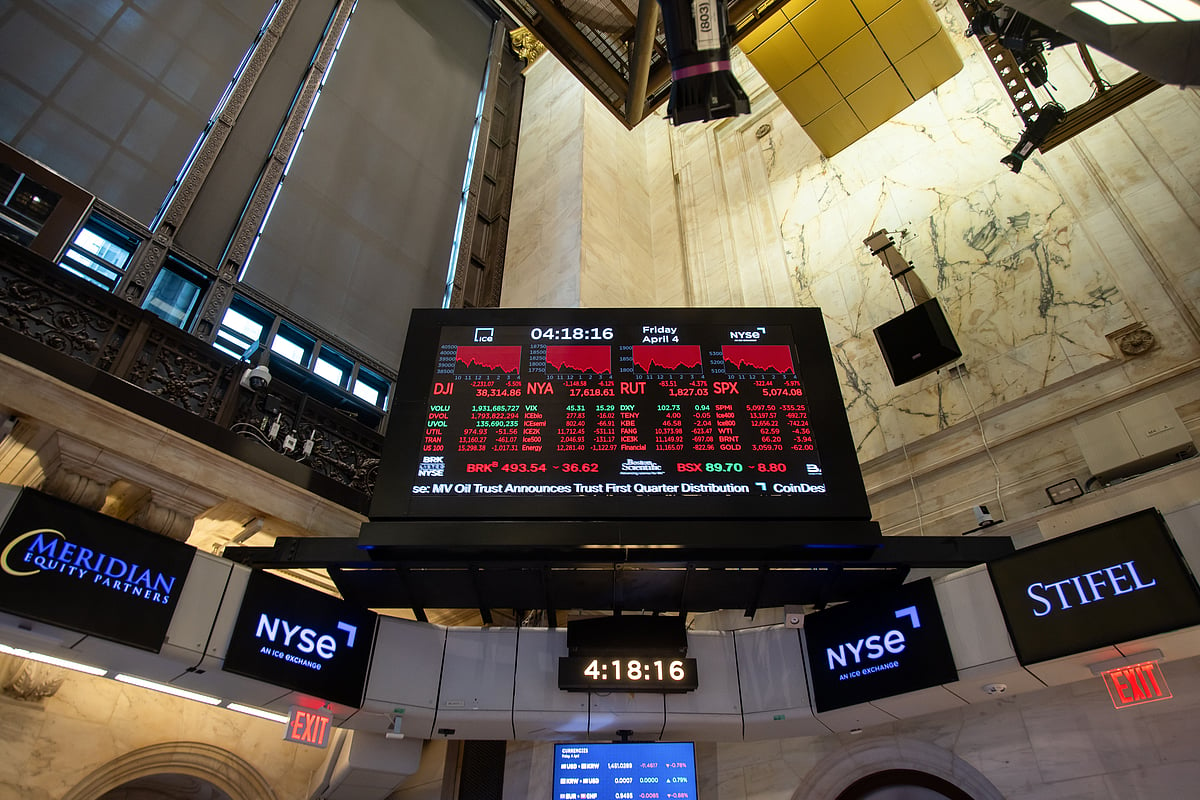Global markets are on edge as Chinese stocks prepare for a challenging reopening after an extended weekend, marked by rising tensions from escalating trade tariffs. Investors worldwide are now flocking to safer assets, reflecting heightened anxiety following retaliatory measures imposed by China against the United States. The impact of these shifts was evident on Monday, with futures for the S&P 500 and Nasdaq 100 plunging over 4% after a significant decline on Friday.
Asian Markets React to Trade Turmoil
As trading resumed in Asia, stock markets in cities like Sydney and Tokyo experienced sharp declines, mirroring the downturn in commodities like oil and copper. The yields on two-year Treasuries, which are highly sensitive to policy changes, dropped by as much as 22 basis points, while safe-haven currencies like the Japanese yen and Swiss franc gained strength.
- Key statistics:
- S&P 500 and Nasdaq 100 futures down 4%
- Stocks in Japan fell 7.6%
- Australia’s S&P/ASX 200 dropped by 6.1%
Tariff Fallout and Economic Outlook
The latest turmoil in the markets follows China’s announcement of a 34% tariff on all U.S. imports, leading to an 8.9% decline in a measure of Chinese stocks listed in the U.S. This aggressive stance highlights the growing fears of a potential recession as the Trump administration seeks to reshape global trade dynamics. Federal Reserve Chair Jerome Powell has indicated that the central bank will not hastily respond to these tariffs, which could result in slower growth and rising inflation in the U.S.
Market analysts predict continued volatility:
- Win Thin, from Brown Brothers Harriman, stated, “The fallout from the tariffs is expected to persist throughout this week,” suggesting that without a change in policy from the Trump administration, stock markets may continue to suffer while Treasury bonds rally.
Market Operations Disrupted
Amid the selloff, market operations faced interruptions. Japan had to activate a circuit-breaker due to the severity of its losses, and South Korea briefly suspended sell orders for program trading. In a contrasting perspective, Trump’s senior economic advisors have downplayed concerns regarding inflation and recession, asserting that a strong economic boom is on the horizon.
Corporate Responses to Tariffs
The tariffs, set to take effect on April 9, have already begun to disrupt global business operations. Notably, Jaguar Land Rover announced a pause on shipments to the U.S., while Mercedes Benz Group AG is contemplating relocating production of one of its models to the U.S. In response, China has vowed to take decisive measures to protect its economy, including “resolute measures” to defend its sovereignty and security.
Global Implications and Regional Responses
As the trade war intensifies, countries like Malaysia are stepping up efforts to coordinate a regional response to U.S. tariffs, while India has opted for engagement rather than retaliation, seeking trade negotiations instead.
Commodities and Currency Movements
The commodities market also felt the pressure, with copper prices plummeting by up to 6.4% at the London Metal Exchange. Gold, which has seen record highs recently, fell 1.3%. Oil prices dropped sharply after Saudi Arabia cut its flagship crude price significantly, signaling increasing trade risks.
- Market highlights:
- Crude oil down 3.7% to $59.70 per barrel
- Gold down 1.7% to $2,987.30 an ounce
Conclusion
As the world’s two largest economies engage in an escalating trade dispute, investors remain wary. The potential for prolonged economic conflict is heightening concerns about market stability and global economic health. Traders are closely monitoring developments, bracing for what could be a turbulent week ahead in both financial markets and international trade relations.











